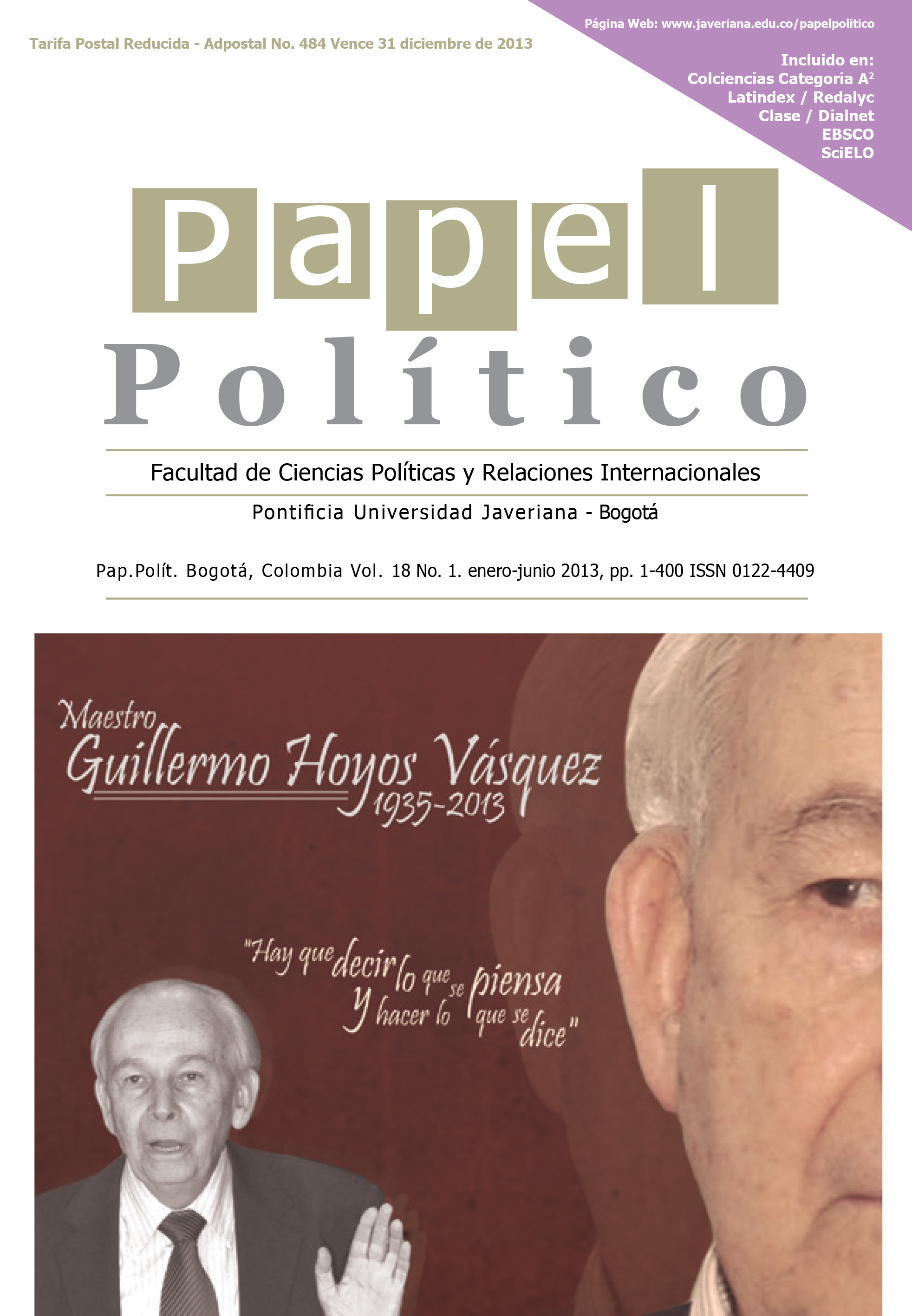Why Deliberation? Challenges for an Epistemic Model of Democratic Legitimacy
##plugins.themes.bootstrap3.article.details##
Abstract
Deliberative democracy is a normative ideal of democracy. This model is a proposal for the regeneration of the legitimacy of our institutions, but also a mechanism for decision making. It is based on two different dimensions: a procedural dimension where the model demands the inclusion and an equal capacity to influence the final decision of all those affected (Cohen, 1989; Bohman, 1996; Habermas, 1992) and a substantive dimension where the political decisions are made through a collective procedure of argumentation and public discussion. If these conditions are recognized, the decisions will be more rational and better decisions. This paper has two aims. First I will present the key elements of this epistemic conception of political legitimacy. Second I will show the challenges it faces. On a one hand, the counterfactual of many of its postulates and on the other, the obvious problems of bias consensualist of this model.
Keywords
Deliberative Democracy, Epistemic Value, Consensus, Rationality, Moral Rightness.Democracia deliberativa, valor epistémico, consenso, racionalidad, corrección moral.
References
How to Cite
García Alonso, R. (2013). Why Deliberation? Challenges for an Epistemic Model of Democratic Legitimacy. Papel Político, 18(1), 185–203. Retrieved from https://revistas.javeriana.edu.co/index.php/papelpol/article/view/6352
Section
Political Science


